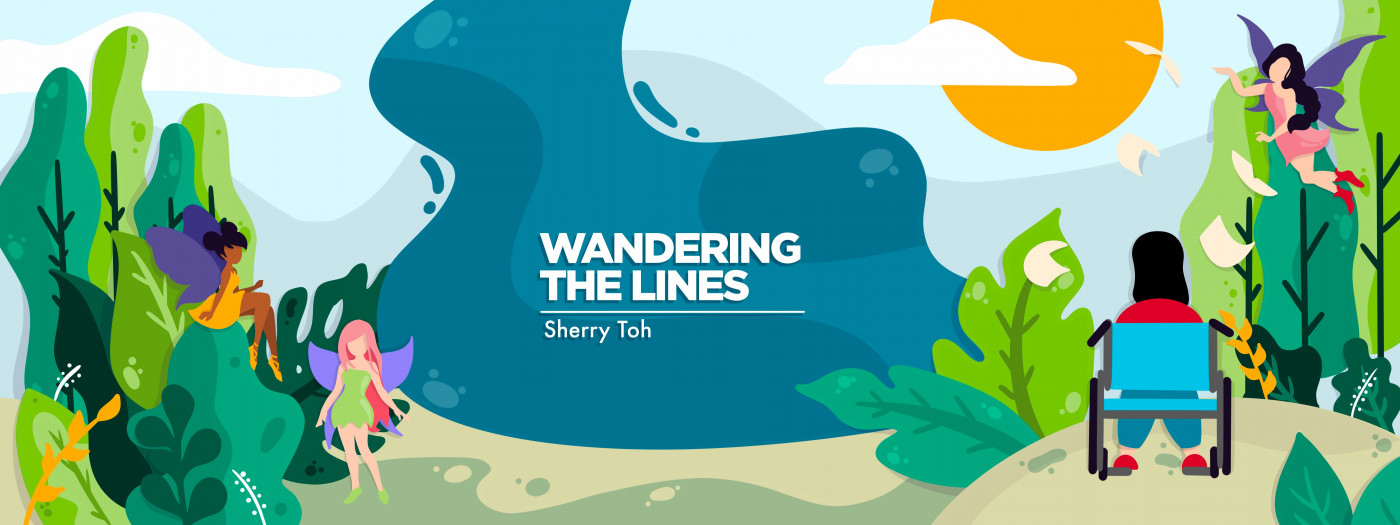How to Become a Freelance Journalist: Crip Edition
Written by |

From my perspective, the typical path to becoming a journalist looks like this:
First, you enter the formal education system and learn what you can from kindergarten till high school. Then, you try to figure out what you’re going to do with your life for the next several decades. You look at your grades and find you’re not exactly good at math or science, but you did well in your humanities classes. Journalism stands out as a major on college pamphlets because you like reading and writing, but you’ve seen the stress your English teachers go through, and writing a novel doesn’t pay unless you’re published. So you sign up for journalism, maybe write for the college news publication, graduate, intern at a news company, and ta-da! You’re a journalist!
That wasn’t my path to journalism. At all.
I never made it into the formal education system. I was a sickly kid who was hospitalized often and wouldn’t have been able to tolerate the education system’s schedules and learning structures. My mum home-schooled me for a few years, but for most of my life, I was “educated” by whatever and whomever I found interesting on the internet.
Then, one day, I met my best friend and fellow columnist Brianna Albers, who’d later recommend me for a columnist position at SMA News Today. I turned in a writing sample that columns director Brad Dell liked, got the job, and suddenly found a world full of opportunities after a few of my columns were published. Now, here I am, with articles in four publications and counting, as well as a very cool project in the works with people I admire.
I even paid for most of my new $2,400 (about $3,400 in Singapore) gaming laptop with my earnings.
“Unconventional” would be an apt descriptor for my career path. You don’t see many journalists without bachelor’s degrees running around, let alone ones without primary school exam scores. It’s something I’m struggling with, particularly whenever a new opportunity opens up and impresses my family. To them, every piece of my writing that’s published is like a new feat. To me? It’s a mundane product of typing out my thoughts on something I’ve experienced and, if I’m interviewing anyone, many emails and messages.
I recognize why someone might be impressed by a journalist with no academic credentials. Again, it’s a pretty unique life journey. But by focusing on how I’ve succeeded in building a career despite what I lack, we lose the bigger picture of how I’ve succeeded with what I have.
If my mum didn’t instill a love for reading in me, I wouldn’t have learned creative writing. If my parents didn’t feel an iPhone was necessary to my independence, I couldn’t write all my columns and articles in bed like I have for the past year. If I hadn’t befriended Brie, I wouldn’t have known Bionews, the parent company of SMA News Today, was hiring. If Bionews’ editors didn’t guide me through the ethics and necessities of quality journalism, I couldn’t impress the editors who took a chance on me elsewhere.
My abilities maybe played a part in my career’s trajectory, but I can only do what I do because of the love and help I received.
I don’t know if I would’ve touched this subject a year or two ago. When you’re disabled, your gratitude for what you’re given can be tainted by the shame of feeling like you haven’t “earned” it. Society often measures worth by material contributions and devalues those who seemingly take without giving back (untrue though it is).
When I was unemployed and just beginning my job, I felt I was a leech. That feeling lingers from time to time, but as I speak to peers, disabled and nondisabled, and wrestle with the shame this Disability Pride Month, I’m finding we all needed help in getting to where we are today. Some of us just needed a little more.
I’m hoping I’ll be one of those boring people with a bachelor’s degree one day. Maybe with a writing job in games development, if I reach a point of fatigue with journalism and active disability advocacy.
In considering disability pride, I’m quite taken by the idea that living life the way I want outside the expectations of society is a different form of advocacy. A “gentler” form, as autistic researcher and multimedia artist Dr. Dawn-Joy Leong called it, when I had the privilege of interviewing her for an article on local journalism ethics as it relates to autism representation for Singapore’s Rice Media.
But for now, I’m happy to remind myself and others that it’s OK to receive help, and that we should pass that help on.
Note: SMA News Today is strictly a news and information website about the disease. It does not provide medical advice, diagnosis, or treatment. This content is not intended to be a substitute for professional medical advice, diagnosis, or treatment. Always seek the advice of your physician or other qualified health provider with any questions you may have regarding a medical condition. Never disregard professional medical advice or delay in seeking it because of something you have read on this website. The opinions expressed in this column are not those of SMA News Today or its parent company, Bionews, and are intended to spark discussion about issues pertaining to spinal muscular atrophy.





Leave a comment
Fill in the required fields to post. Your email address will not be published.